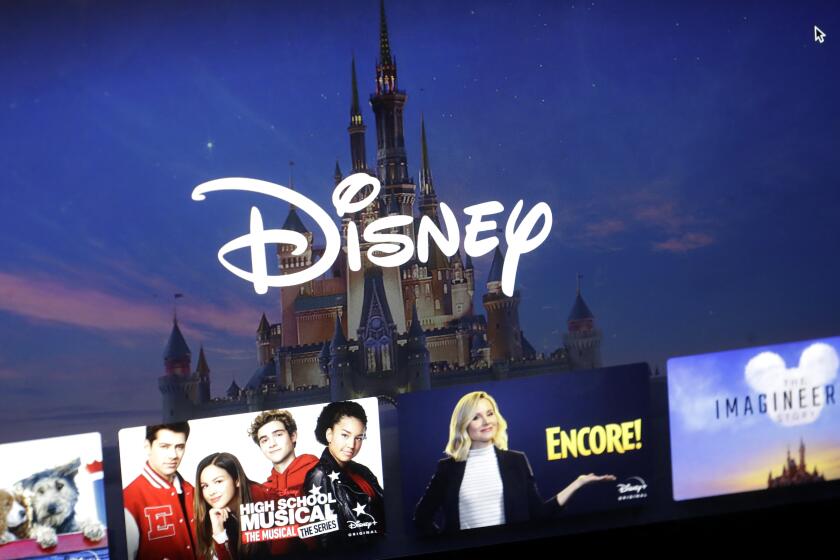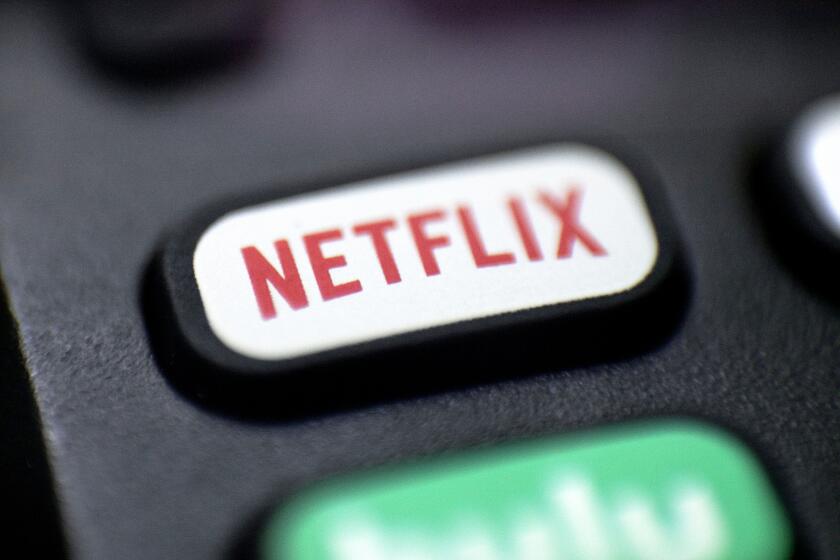Disney+ launches password sharing crackdown. What you need to know

- Share via
Disney+’s long-awaited crackdown on freeloaders has officially arrived.
Walt Disney Co.’s flagship streaming service will now require subscribers to pay more if they want to allow users outside their households to access the service.
The plan, which the Burbank entertainment giant previously announced, is meant to boost revenue for the streamer as it looks for ways to grow its subscriber count and generate greater profits, a top priority for Chief Executive Bob Iger.
Disney notched a milestone in its streaming business: It reported profitability across its Disney+, Hulu and ESPN+ services for the first time.
Subscribers who want to add an outside user can do so with what the company calls an “extra member add-on.”
In the U.S., tacking on an additional member will cost $7 a month for Disney’s “basic” subscription, which includes commercial breaks, and $10 a month for its ad-free “premium” tier, the company said in a Wednesday blog post. Only one extra member is allowed for each account.
The move comes as Disney+ and Hulu have been steadily increasing prices to achieve profitability.
Next month the monthly fee for ad-supported Disney+ will jump to $10, up from $8. The commercial-free version’s price will be hiked to $16 from $14, while the cost for those billed annually will go up to $160 a year from $140.
Netflix is emailing U.S. users, warning them that it will start charging $7.99 a month to allow people outside their households to stream from their accounts.
The extra member function is not available for Disney Bundle subscribers or for those billed by distributors, such as pay-TV operators.
Disney and other streamers are following the lead of Netflix, which launched its paid password-sharing program last year. The tactic, implemented after the Los Gatos company reported subscriber losses, has been credited with improving Netflix’s earnings in the subsequent quarters.
More to Read
Inside the business of entertainment
The Wide Shot brings you news, analysis and insights on everything from streaming wars to production — and what it all means for the future.
You may occasionally receive promotional content from the Los Angeles Times.













